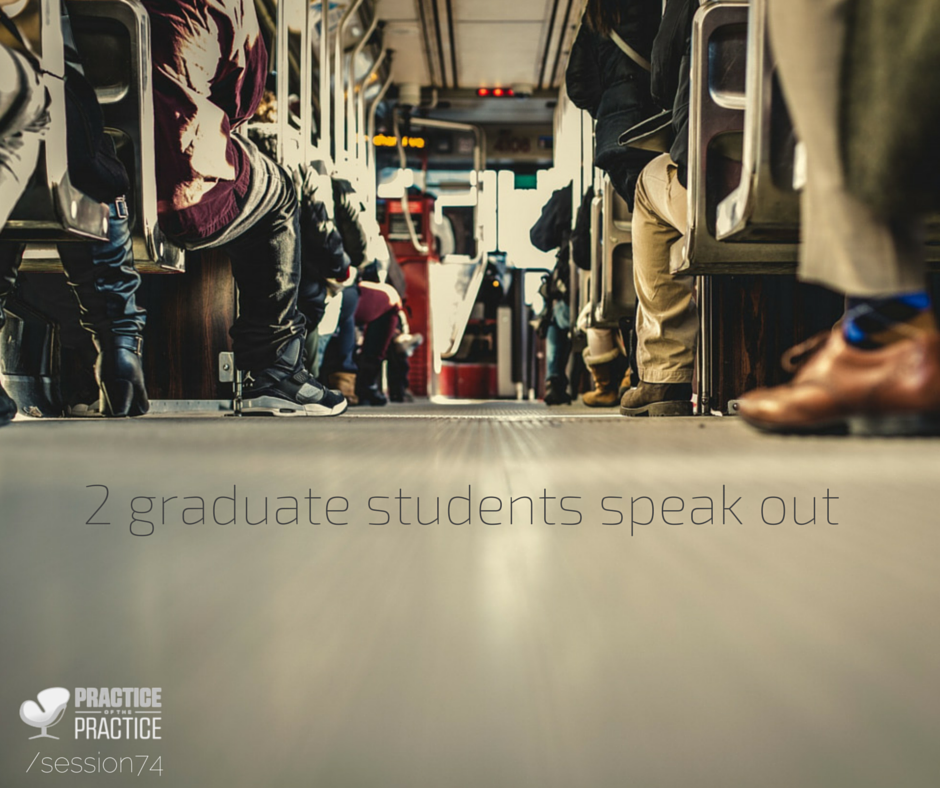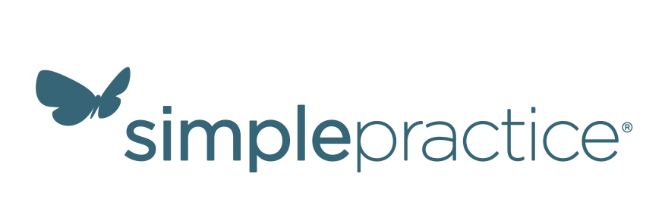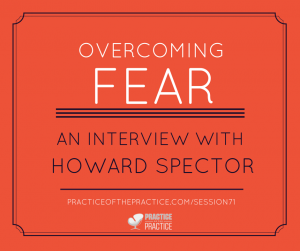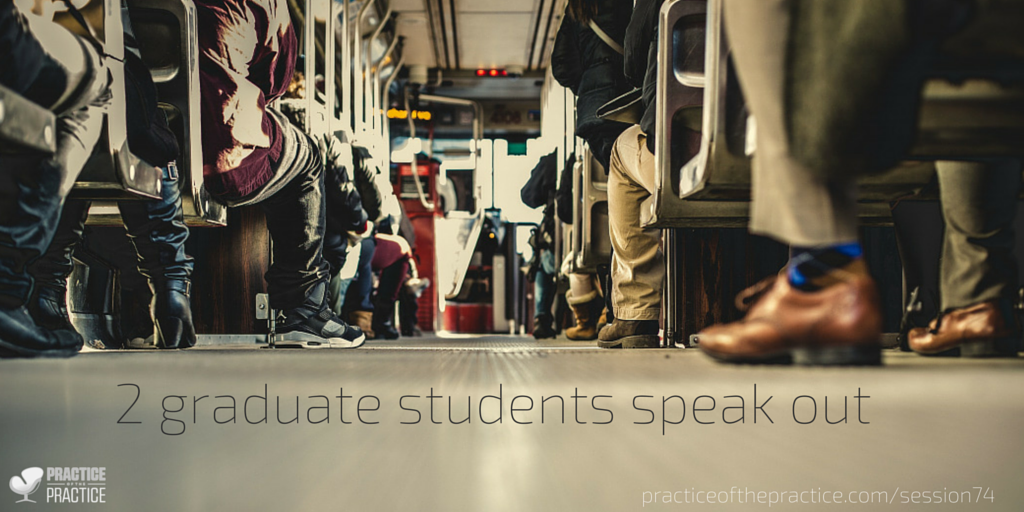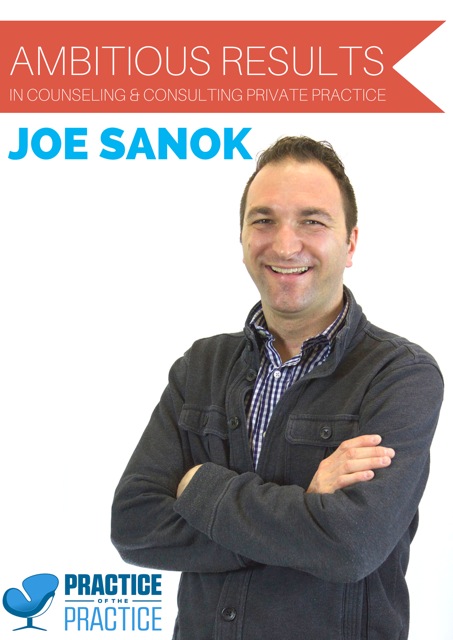Podcast: Play in new window | Download | Embed
Today’s Private Practice Podcast Sponsor
What you will discover in this podcast
3:21 Why Twitter made all the difference
6:43 Why Gary is a celebrity
14:21 What every student volunteer needs to know
19:15 Why L thought she’d never work with kids and why she changed
26:45 What Joe taught Gary and L about ranking in Google and SEO
Practice Nation Meet L Allen Crosby and Gary Mayne
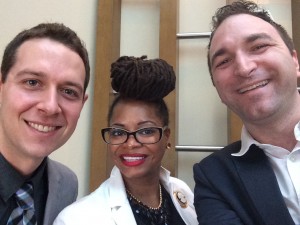 Gary Mayne
Gary Mayne
As an educator, musician, and now mental health professional, Gary is in pursuit of combining his passions into a dynamic, people-centered career. As a Master’s student in the twilight of his degree and internship, he is completing his clinical training in Washington, DC where he is inspired daily by colleagues, professors, mentors, community, and his family.
Gary‘s clinical areas of interest are: Trauma, Depression, Military Family Life, Military Deployment Cycle, Music Therapy in Clinical Settings, Solution-Focused and Cognitive Behavioral Therapy for Domestic Violence Survivors and Abusers, and Substance Abuse and Addictions. He has worked in a metropolitan-area Community Mental Health agency as community support and has taught in the DC Public Schools as well as years in the Colorado Public
Schools. Private practice is the ultimate goal for Gary post-licensure.
As a musician, Gary has performed for over a decade with a diverse array some of our country’s finest musicians and can be heard on over 20 albums available on iTunes. Music is a prominent part of his daily self care and is something he pursues as a passion and window into the world’s of other people cultures outside my own. Gary has toured throughout the US and Caribbean and this summer will be headed to the Middle East as the trombone instructor at jazz camps in Cypress and Beirut, Lebanon.
At his most relaxed and highest times of self care, you can find Gary at the dog park with his two high energy dogs, performing around the DC area, or having a conversation with friends and family.
L. Allen Crosby
L. Allen Crosby is a 3rd year Graduate Student at Trinity Washington University. She is concentrating on her master’s degree in Clinical Mental Health and is slated to graduate summer 2015. L. serves as the
Student Liaison for District of Columbia Counseling Association (DCCA), a Graduate Student Ambassador for Trinity and sits on the Graduate Student Advisory Committee. In 2014, L. received the DCCA Graduate Student Scholarship and this year, she served as one of the Graduate Student Volunteers at ACAOrlando2015.
Before attending Trinity, L. was a Program and Grants Manager for the Washington Area Women’s Foundation, a small nonprofit organization, where she played a key role in grant making initiatives that improved lives of women and girls in and around Washington, DC. While in Graduate school, L. has served as a Community Support Worker where found her niche in counseling. Post graduation, L. intends to go into private practice where she will focus her work in the areas of Trauma, Grief & Loss and
Substance Abuse.
L. graduated from University of Maryland University College with a bachelor’s degree in English and a minor in African-American Studies. She is current working full-time as a Case Manager with the District of Columbia Public School system. In her spare time she enjoys traveling and antiquing.
L. and her husband reside in Washington, DC.
See why I love these two! -Joe
Podcasts you may have missed
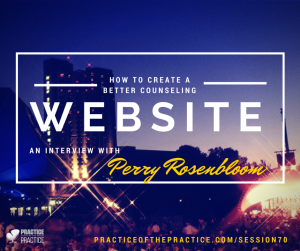
Gary and L on Twitter
Music From The Podcast
Silence is Sexy
Kellie Maize
For your social media
Joseph R. Sanok, MA, LLP, LPC, NCC
Joe Sanok is an ambitious results expert. He is a private practice business consultant and counselor that helps small businesses and counselors in private practice to increase revenue and have more fun! He helps owners with website design, vision, growth, and using their time to create income through being a private practice consultant.
Joe was frustrated with his lack of business and marketing skills when he left graduate school. He loved helping people through counseling, but felt that often people couldn’t find him. Over the past few years he has grown his skills, income, and ability to lead others, while still maintaining an active private practice in Traverse City, MI.
To link to Joe’s Google+ .
Here is the Transcription of This Podcast
What to do before graduation An interview with L Allen Crosby and Gary Mayne
This is the Practice of the Practice Podcast with Joe Sanok, Session 74. I’m Joe Sanok, your host and I am so glad you’re here. Today’s episode is being sponsored by SimplePractice. SimplePractice is just like the best practice management system out there. I’ve looked a whole bunch of them and SimplePractice, I just feel like it’s so intuitive it’s like the Mac of practice management systems in regards to billing, scheduling, just they’re always coming out with new updates and I interviewed Howard Spector a couple of episodes ago, and he’s just such a cool guy. He’s this guy that he was going through grad school and he realized that he wanted to do software stuff so he started making solutions for people in private practice. So, just super cool guy, super cool products. So, check him out, simplepractice.com. Let him know that you heard about him from me. I think they’re going to give you a little bit of a discount or something free. Sorry, I don’t have it right in front of me.
But today, I am so excited because I have my friends, L. and Gary on the podcast and these are two people that I met at the ACA conference that are just so cool. They are such a power and I say power couple in the professional sense but they are not together, together. But they’ve been in school together and they’ve created just such an amazing story together as to kind of their future.
So, I was walking around on the day before the conference really started and I really think that this puts a spotlight on why you should be active on social media. And you’ll understand in just a minute why.
I was talking to L. and to Gary. I was giving out free sunglasses. Last week, I talked to you a little bit about how I felt kind of weird walking up to people so I kind of overcome that. I say, “Hey, did you guys get your free sunglasses yet?” And they said, “No. Free sunglasses? We’d love to have some.” So I sat down and talked to them and Gary actually recognized my voice from the podcast and we got talking about kind of their career goals, their private practice goals and usually when I ask people that are in grad school like what kind of private practice do you want to do? They say, “Well, I want to help like couples and individuals and I want to do some group work and some trauma work and help people with depression and anxiety and maybe some PTST” and it’s like everything they’ve learned they just kind of say I want to do it all.
But Gary and L. were like, “No. We want to help people dealing with this” and they’re going to reveal to you what it is that they want to do and they just can articulate it so well, and I’m so impressed because they’re like they even haven’t graduated yet. They understand what they’re going to need to do to be successful in private practice. So I have this great conversation with them.
Why Twitter made all the difference
The next morning, I’m at the keynote and wasn’t really loving it. Didn’t think it was as amazing as maybe some other people thought it was. So, I was on Twitter kind of tweeting some things out and then L. like during the keynote you know, she favorited some of my things, re-tweeted some of my things and then I sent her a message through Twitter, “Hey, I’d love to interview you and Gary about just what you want to do with your private practice.” And she said, “That’d be great. Gary is right here with me.” And I said, “Hey, right after the keynote, do you want to meet?”
We actually skipped out of the Q & A time and went and did the interview. And to me, it just put a spotlight on how you can connect with influencers and not that I’m some big influencer or anything but you can connect with people that are going to help you out in your career if you’re active on social media. If they know who you are, if you do it in a very organic way, it’s not like L. was just like pushing kind of her own agenda. She wasn’t saying, “Hey, get us on the podcast” and if she had asked that I probably would have been like “Yeah. I don’t know.”
But she just kind of lived out and Gary lived out what I’ve been teaching for like 73 episodes and having a niche, having a focus, partnering up with people, having people that can help you grow faster than if you did it by yourself. And they just epitomized all of that.
So, I’m so excited to introduce you to my friends, L. and Gary and if you want to see some fun selfies of us, just go to practiceofthepractice.com/session74 and I’m going to have things in the show notes like any of the links that we talk about and stuff like that.
So, without any further ado, I give L. and Gary.
Joe Sanok: All right, I’m here with L. and Gary at the ACA conference in Orlando. We just met yesterday. How are you guys doing?
LC: We’re doing great. The conference is awesome.
GM: We’re doing fabulous. It is.
Joe Sanok: I was passing out sunglasses yesterday and L. and Gary looked like fun people to talk to. So I sat down and chatted with them. Gary actually had listened to the podcast which is super cool. I was just talking with them. They’re about to graduate from their grad program, and they’ve just a ton of insights and cool things that they’ve been doing.
Why don’t you start with like what’s each of your story? How’d you get into counseling? Then we’ll go there. We’ll start with L.
LC: Okay. I worked as a Grants and Program Manager at the Washington Area Women’s Foundation. I’m a native Washingtonian and was single mom. So working with women and working on the side where you’re making grants and you’re making decisions about how people actually use those funds. That was interesting in a different perspective, but I’ve always wanted to just kind of work on the other side, do the groundwork, work with the women, work with the people, where I can make an impact and particularly in my own backyard.
Joe Sanok: Awesome. And Gary, what about you?
GM: Well, that’s a good question. Mine’s kind of complicated, but I’ll do the best I can. So, I’m from Colorado, but I live in Washington DC for school, and when I moved to Washington DC, I was a teacher in Colorado and I kind of left my teaching in Colorado to go grad school in Washington. I taught music and so when I went to —
Joe Sanok: What do you play?
GM: I play a trombone.
Joe Sanok: Oh, cool.
GM: I still play a trombone. I still play a lot.
Joe Sanok: In a band?
GM: Yeah, I still play in a band and done a lot of touring and kind of miss that life.
LC: He rocks.
Joe Sanok: That’s awesome.
GM: I do the thing you know.
Joe Sanok: Awesome. I play saxophone and I also play guitars.
GM: Okay. That’s great.
Joe Sanok: Anyway.
GM: That’s okay. The last time I was in Orlando I was playing in the House of Blues in Downtown Disney.
Joe Sanok: Wow!
GM: So, that’s a lot that’s not here.
Joe Sanok: What band were you with for that?
GM: There’s a band called Big Head Todd and the Monsters.
Joe Sanok: Wow!
GM: [? 06:39]
Why Gary is a celebrity
Joe Sanok: Who knew that I was interviewing a celebrity that play at the House of Blues. Look at that.
GM: Oh, that’s not true.
Joe Sanok: It is.
GM: Well, one thing I will say about this young lady to my right, Latricia Allen Crosby, is when I got to Washington DC and I went into school for the first time, I was just scared being in a new place. I walked into the orientation room with L. See, we were the only two students with the professor, and literally, from the time that we met until today in this interview, she’s been one of my closest friends and a primary supporter. You know, I just wanted to thank her publicly for that, as I do privately all the time.
LC: Well, it’s important. I mean, when you’re starting a graduate and you’re new, it’s a career shift from both of us. Right? As Gary mentioned, he was teaching school, so a career shift and I’m a little bit older than some of the students. I’m 40 so you know, coming in, it’s like, “Oh, my gosh. What am I going to do? You know, who am I going to kind of pair with so that we can definitely support each other?”
GM: And I’m a little bit younger. I’m 12 going on 13.
Joe Sanok: Judy Houser over here.
GM: I’ve just gotten a lot younger short of my time.
LC: So, it’s important I think for me to just kind of as a new person now, I probably am like the DC Convention’s Bureau like I’m always trying to make sure that everyone feels welcome in my hometown, but it was important for me to just really make sure that Gary was okay that so we can form a support system, kind of like a cohort which we did and a lot of us, it’s about five of us only, unfortunately, two us were here for the conference but really forming that network and keeping each other supported I think during the whole process.
GM: Absolutely.
Joe Sanok: I think that’s something in grad school. I really do that much like I was so focused on like just get the classes done and then work and I had my one friend that you know we were already friends going into the program, but there are these people that are doing amazing things that I’m not even connected with now.
LC: Well, and that’s the real key. I mean, like when you’re working and you have a family, both Gary and I are married, we have spouses, we have responsibilities, we have, our pet parents. I have a son like so we have a lot of responsibilities outside of just school. Right?
GM: One thing about that too that I’ve really felt especially dealing with a new city is having somebody to bounce ideas off of and to go through things with, I really do believe increases the quality of the work that you put out during your time in grad school. And you know, just having moved to DC, starting this new kind of path and the primary reason why I left education to go into this new field is as an educator, which I really love teaching, my passions really lied in trying to help students move through their personal situations, transcend those struggles and help their families, as well which is a little bit of a different role than I was playing as a teacher to a certain degree. It was beyond my scope as a teacher.
Moving into this field for me is extremely natural and feels extremely nature as well and I think that L. and I share that same thing.
LC: We definitely do and as I was leaving my previous career, I got into community support work and I shared that information with Gary and he worked for another agency where we were able to work almost immediately actually with a huge case load of about 20 to 30 folks, young people and adults who needed outpatient or who were receiving outpatient mental health services.
We were like the Segway to help them kind of do case management, medication management, all you know —
GM: Life skills.
LC: Life skills.
GM: Appointments, all sorts of things.
LC: Yeah, the whole gamut of what they needed and for us, I don’t want to speak for you Gary, but I think it was just kind of like a real kind of like introduction into the field, skills that we didn’t have because we came from a different place and we were able to really kind of speak broadly on projects and different things and to our own colleagues about what we’re seeing immediately in the field before we even got started and particularly around the trauma stuff that we saw throughout our early career.
GM: Absolutely.
Joe Sanok: So, before we go into too much of the clinical side, which I definitely want to talk about, so there’s a lot of people that listen that are in grad school that they want to launch well. Like what advice do you have for them for the people that are like just starting or even towards the end of their program?
GM: I would say, for myself, what I found the most helpful was to surround myself with like-minded people who shared your passions, shared your work ethic, and you could really create that relationship that was collaborative and so you didn’t feel like you were going alone.
LC: I definitely agree with that partner of with the Gary.
Joe Sanok: Find your Gary.
LC: Find your Gary.
GM: [? 11:27]
Joe Sanok: Maybe they should do it in this podcast. Find your Gary.
LC: Absolutely.
GM: I like that.
LC: Find your Gary and L. that’s like for you. I am a woman in this thing.
GM: That’s right.
LC: So, definitely, find a partner, find a cohort or create your own. Our school did not have a cohort for the clinical or counseling program so we formed that.
GM: We just made one.
LC: Yeah. Become members of the agencies, the organizations. I’m a member of DCCA, I’m a student advisory council member and I’m an adult like I’m not just a 23-year-old kid coming to graduate school. I’m an adult but for me this is a career change and I want to make my name known and I want to be out there. I don’t want to just come to school and get my you know, 4.0 and go home. I want them to know I’m an emerging leader in the field, and I’m here to do the work and this is why.
Joe Sanok: Well, you mean just how, like how this podcast came up like I tweeted out like Allen and Gary it’s great to meet you. I didn’t know your usernames and Twitter at all and L. like you know, right away started following me and like we tweeted it out and then we were like tweeting back and forth during the keynote and like —
LC: But we were paying attention.
Joe Sanok: We were paying attention.
LC: Multi-tasking.
Joe Sanok: Multi-tasking.
GM: That’s one thing that L.’s really good at. She’s good at finding ways to really contribute to what’s happening but also politely become a leader in whatever event she’s in. I’ve seen it in everything. I mean, I’ll give you another example. We’re both here at the ACA conference in a Student Volunteer program which has been incredible because at least for me, I wouldn’t have met half the people I’ve met so far if I didn’t take that risk, commit that time and that’s something that L. and I decided to do together back in October and it’s been wonderful.
LC: It is. Especially as a first-timer and you know, interestingly when I met some first-timers who aren’t volunteering, I’m like, “Oh, no. You need this opportunity. You should be volunteering like you know, if for nothing else for the networking, if nothing else from the behind-the-scenes I will let you guys in on a little secret. I was an event planner so I planned his events like this in my previous life before working at the women’s foundation, so I come from this corporate I have like all of these mesh of stuff behind me, but really at the forefront, I just want to help people, I just want to do of being a good job and you know, healing communities and particularly the ones in DC, like in my own backyard.
What every student volunteer needs to know
GM: Another thing, I will hop in on that too, is I was just — having been a teacher, a band director in charge of kind of event planning as well, is if you are a student volunteer or you’re just walking through the hallway, I think it’s important to approach everyone you meet as somebody that you could form a relationship with.
LC: Absolutely.
GM: Like an L. or like a Joe or to just be willing to put yourself out there even though it takes a lot of extra energy sometimes.
Joe Sanok: Well, and even something as simple as like you both are just really well-dressed compared to everybody else.
GM: Sure.
Joe Sanok: You know, it’s like I always wear suits and these guys —
Cross-talk
GM: You noticed my elbow pads?
Joe Sanok: I love it. He’s got — okay. Let me describe these students’ outfits because this is just like it’s stellar. So, Gary has got this like light gray blazer on that has this like kind of dark blue elbow pads. He’s got this like plaid checkered tie that’s got — he’s got a shirt that’s like a darker bluish gray and then L.’s got this great white kind of like coat on — not a coat, blazer and it’s really cool like gold pin with — it’s such a —
LC: This is a cameo.
Joe Sanok: It’s a what?
LC: It’s called a cameo.
Joe Sanok: A cameo and she’s got this just cool dreads up on top of her head and so I mean, they both just look like they stepped out of like Elle Magazine or something like that or GQ Magazine. Gary Q. Magazine.
GM: We both made these outfits from scratch like sewed it and everything.
Joe Sanok: Wow, so you don’t have to worry about sweatshop labor and any of that either. That’s awesome. Good for you.
GM: [? 15:28]
Joe Sanok: Wow! Hashtag: we made our clothing for ACA.
LC: The counselors that do everything: remember you talked about that yesterday when you’re like, “What’s your specialty and… ”
Joe Sanok: What’s your niche?
LC: Yeah, and so it’s good to really kind of hone in on that. I think from having our community support experience and we have that independently but kind of at the same time where we could bounce, kind of builds ideas off of each other. It’s just been wonderful.
GM: Right.
LC: I’ve grown so much in my program just from the beginning of it just kind of nervous and being a little bit of an older student. I’m just like, “What do I do?” but really, just getting your feet wet.
GM: Absolutely.
LC: Just jumping in and getting your feet wet in the whole process of it.
GM: To add on to that, going back into clinical training, as a student, you’ve got you know, a 700-hour requirement or whatever it is for your program, I’m pretty sure I can speak for L. and myself where it’s not about getting the hours. We’ll get the hours. I mean, we’ll probably have 1400 hours by the time we’re done, but I’m pretty sure that we’ll both be able to look back on each hour and know that each minute, we were really doing something productive. We weren’t logging time. We were —
LC: Changing lives.
GM: — preparing ourselves for success during that time.
LC: Yeah, absolutely.
Joe Sanok: I want to fast forward that you guys talked about maybe exploiting the idea of opening a private practice together or you’re kind of in the, “We’ll see how that goes after we graduate.”
GM: Sure.
Joe Sanok: But I want to talk a little bit about kind of the niche that you’re already kind of thinking about because I mean, I work with clinicians that are 20 years out and they still are like, “I help everybody.”
GM: Right.
Joe Sanok: I actually just was talking to someone recently and I said, “Who’s like your specific niche?” And they said, “Well, anyone that’ll give me money.” I’m like, “Really?” That’s just so like, inappropriate on so many levels.
LC: Yeah.
GM: Right.
Joe Sanok: So, talk a little bit about kind of the kind of the niche you guys are exploring. Just your process of deciding should we open a private practice?
LC: Well, I’ll start if you don’t mind, Gary.
GM: Sure.
LC: Definitely, trauma. I think as we talked to just a little bit when we were in our during our field, clinical field training with addictions counseling so when you have clients that are struggling with an addiction, I mean, it’s almost inevitable that they’ll have a trauma history or a long trauma history at that and so just looking at how like where’d that all come from? Where’d that all start? And how we can best serve and understand, I honestly had a real bias like I don’t want to work with substance abuse population, but that’s my first my internship and it is the most raw and the most real experience that I could ever gain and I’m actually glad. I mean, it’s changed me, it’s changed my opinions about what I think a population should look like.
At the end of the day we’re all human and we all have the same basic needs and wants and if I can help support a client on that level to be able to some way or another self-actualize or come to themselves or learn something from this experience, even if you want to go and smoke crack for the next 25 years, at least, I was there to help kind of think about your history, where you’re coming from and how you can propel yourself.
Joe Sanok: It’s so amazing that when you have experiences and especially in internship like the population’s like I would never work with them.
LC: Yeah, well absolutely.
Joe Sanok: Like my wife, she’s an occupational therapist and she was like, “I don’t want to work with kids. I never want to work with kids” and then she did her kids’ internships and now she’s launching an OT for kids.
GM: Right. That’s how it goes.
Joe Sanok: It’s like when you gain that expertise, you’re just like, “Oh, this isn’t what I thought it was.” Maybe you had a false impression of what that population was like.
Why L thought she’d never work with kids and why she changed
LC: Don’t even say that. I worked for difficult schools right now as a family care coordinator kind of like of advocate for kids who are coming into special vocation and I worked with tons of occupational therapists like on this multi-disciplinary team and I said, “I’d never work with kids.” You know, two-year-olds to five-year-olds are my population every single day.
I mean, it’s a definitely a wide perspective when you have that experience because you know, for the counselors you say I work with everyone. I mean, do you really? Or do you just work with this small segment and it just feels like everyone?
GM: Right.
LC: I think it’s best to hold it in.
Joe Sanok: So, what about you Gary about the kind of niche in private practice?
GM: Yeah, yeah, yeah. I would also go along the same lines as L. would say that trauma is the base-line of what I want to stir myself towards whether it’s working with kids and at-risk youth for prevention or working with adults who’ve experienced trauma and they’re trying to work through it or trying to figure out healthy ways to cope.
I’ll tell a quick story. When I first moved to DC, I was a long term sub teaching music and a DC just inner city high school and in DCPS, there’s a music requirement so everybody in the district has a get class to graduate. The music’s classes are quite often full of kids who just have to be there, and they’d been through 14-15 subs trying to find somebody who would stick and so the first day this is what happened. I entered the classroom and I organized it you know, it isn’t like that. I get all ready to go, I’m all ready to present. Students enter the classroom and it’ really, really loud, chaotic, all the stuff and the bell rings, introduced myself. I’m Mr. Mayne still chaotic craziness, noise everything and I say hi, I’m Mr. Mayne and I called a stop.
Joe Sanok: Maybe you didn’t hear me.
GM: No response. It’s like I wasn’t there and so what I decided to do is just grab a stool. I sat it right in the middle of the classroom, and I just sat on that stool and waited till somebody looked me and it took about 25 minutes until anybody would acknowledge that I was in existence in that classroom. I was kind of hoping things would become awkward which it did and I was awesome because awkwardness kind of led to silence and that silence led everybody to look at me and so basically when that happened, I let the silence stick for a second and then I looked back at everybody else and I said, “You know, my name is Mayne, excited to be here with you and if there is one thing I’m really proud of is that I treat everybody that I meet with as much respect as I possibly can and the first thing I want you to do if you ever feel disrespected by me is tell me immediately. And that’s really important to me because I have that much pride in how I treat other people. So, please, tell me right away.”
Having talked with people like L. especially in a high-stress situation like in inner city DC, the exposure level to stress, to trauma, is just a natural part of life. You can go home and see somebody mugged, killed, harassed, or you could be that person.
LC: Or you can see someone shooting up at the White House or shooting up at the navy yard or you know, some of those mass violent situations that we see.
GM: It’s really, as a student, and we both get done in July, I’m still — I know that trauma is where I want to be. Honing in even farther, I would like to really specialize in dealing with trauma prevention or with children in trauma or the flip side. I would like to specialize even farther, specializing in really getting good at working at that level or working with all the people who are trying to get — that’s where I’m at.
Joe Sanok: Yeah.
GM: I’d really come down to those two things. Do I want to work in prevention or dealing with kids who’ve been there or whether I like to — the flip side of people who have been there and are trying to figure how to live with it.
LC: The thing is that we all just carry our backgrounds and we don’t know what the trigger would be you know, at some point in our lives. I mean, when we think about the mad shootings at the schools or again at the navy yard or you know, at the White House even, it’s like what triggered that person? There are tons of us flocking around with all this stuff and we don’t know — there’s not a Gary or an L. just yet to kind of help them kind of shift through some of that stuff, to package some of that stuff, to deal with some of that stuff. There are so many levels of you know, peeling back that you don’t really get to and you’re looking like, “Oh, we’re just — everyone’s just fine” and so that final moment when someone blows up and then you’re like, “What’s the trauma history and you’ll find out all kinds of stuff you know. So, I think for us both, trauma is just one of the main areas and whether we are — when we are doing our internship. I mean, we deal with that every single day, so definitely, thinking about private practice and how we would definitely make that one of the anchors of our work.
GM: One thing I do in my clinical internship, I get to do it at a really wonderful place called the Kolmac Clinic in Washington DC. We work in addictions and we really refer a lot of people out who have a lot of trauma history to trauma specialists, and so I’d really like to be one of the people we refer out to.
LC: You are a trauma specialist. I just want to let you know that. I see this right now. You’re a trauma specialist. That’s it.
GM: I’m in my cocoon at the moment.
LC: You are — you are —
GM: I’m preparing myself.
LC: You are all the way out as a trauma specialist.
GM: But that’s really where I find — when I’m tired, when I’m low on sleep, when I’m lacking energy I get my natural extra boost from learning about trauma, reading about that. And so I think that means a lot in honing in on really where I see my career going.
LC: Absolutely.
Joe Sanok: Can I share a couple of ideas of how you guys could launch?
LC: Sure. We’d love that.
GM: Yeah.
Joe Sanok: So, one thing that I’ve found with people that have a very specific niche like you guys have is to just take out to lunch as many people that are in that niche in your area. And so like, find who are the top three or five trauma specialists that get the most referrals, and just befriend them.
GM: Yeah.
Joe Sanok: Like take them out to lunch and just learn as much as you can because they’re going to say, “Here’s the certification. Here’s the whatever and you guys may already have been planning.
GM: That’s a great suggestion.
LC: Well you know what’s — yeah. But you know, what is also amazing at Trinity Washington University, some our professors are dynamos, like they are — some have graduated from Trinity will who us but they are already those experts and those leaders in the DC area. I mean, when you think about like Dr. Lucas, I mean, you know, Dr. Robinson, like there are so many people that are already like this is what I am talking about taking advantage of what’s in own your backyard.
GM: Yeah.
LC: I’m made up of Washington DC. There’s no stone unturned for me in that city because I am all over almost everything from social to you know what, especially with the career shift. So, definitely for students who want like you suggest it who want to start something fresh and new, start rubbing elbows with those people.
What Joe taught Gary and L about ranking in Google and SEO
Joe Sanok: I think the other thing is to use the Google Keyword Planner to look at what are people searching for in Washington DC?
LC: Yes.
GM: Great.
Joe Sanok: Maybe you’ve done that.
LC: Yes, that’s a great idea. No I haven’t.
Joe Sanok: You just look at — okay so people are you know searching trauma counselor or they’re searching like ‘trauma after a killing’ counselor like what are they searching for.
LC: Yes.
Joe Sanok: Then find out which websites are ranking for that term and then contact those people.
GM: That’s a great one.
Joe Sanok: When you got your website going, just blog the heck out of those terms.
GM: Right.
Joe Sanok: So, you can outrank those people that you just hang out with.
GM: Right.
LC: You rock. That is good.
GM: You’re getting the world right now.
Joe Sanok: Because honestly like outside of direct referrals you’d also — you work somewhere and then they refer to you like it’s going to be just people randomly typing in trauma specialist.
GM: Yeah, absolutely.
LC: Right.
Joe Sanok: And if you can do ranking for that with you keywords and then I would say even go further in like break it down like a principal’s guide to trauma and counseling, a teacher’s guide to… So that it specifically written for each of these populations.
LC: Love it.
Joe Sanok: Because then the principals will share it among the other teachers and so the parents will share it, grand parents or step parents raising it you know, I mean, you do all the different combinations.
LC: Yeah.
GM: That’s a great point.
LC: That is a great point.
Joe Sanok: Yeah, cool. Well, how can people connect with you if they want to connect with you outside of here, to help you grow or what’s the best way?
LC: Well, I am on Twitter @pingingandpink.
Joe Sanok: Can you spell that out for us?
LC: Yes. P-I-N-G-I-N-G @ pink, P-I-N-K. I’m also at [email protected]
Joe Sanok: Great.
GM: The best way to get a hold of me is probably via email. My email is rgarymayne, R- G-A-R-Y-M-A-Y-N-E @gmail.com. I’m also on Twitter. It’s @garymayne.
Joe Sanok: So, one question I always end with on the podcast is if every counselor in America were listening right now, what would you want them to know?
GM: Find yourself a buddy like L.
Joe Sanok: Find yourself a buddy.
LC: Find yourself a buddy like Gary, absolutely. But also get — jump in there. Just network, network, network, be a resource in your resource powerhouse like you know, Gary and I we try to be every single day so that we can grow our field and grow ourselves.
GM: Awesome.
Joe Sanok: Well, L. and Gary, thank you so much for being on the show and we’ll talk more soon.
LC: Thank you.
GM: Great.
Joe Sanok: There’s just really not much more to say. They are just awesome. So, thanks for letting us into your ears and into your brain this week. Again, check out practiceofthepractice.com/session74. Also, I have a couple of new blog posts on there all about how to leave your full-time job and how to plan. I’ve a worksheet in there. So, check that out right on the home page of Practice of the Practice, and we’d love to connect with your more.
Again, thanks for letting me into your ears and into your brain. Have a good week.
Special thanks to the bands Silence is Sexy and Kellie Maize. Thanks for letting us use your music.
This podcast is designed to provide accurate and authoritative information in regard to the subject matter covered. It is given with the understanding that neither the host, nor guest nor publisher is rendering legal, accounting, clinical or other professional information. If you need a professional, you should find one, right now. Stop listening and find a professional. They will help you grow, especially a consultant named Joe, don’t you know? The flow that I found myself, don’t you know?

